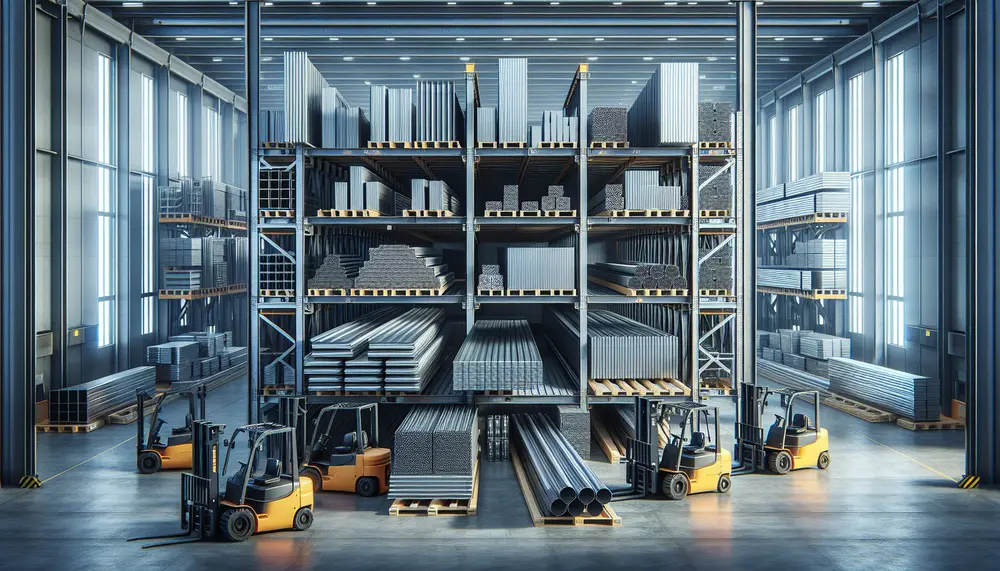Lead time
Lead time
Was ist Lead Time in Steel Production and Steel Trade?
Der Begriff Lead Time (deutsch: Durchlaufzeit) bezeichnet in der Stahlproduktion und im Stahlhandel den Zeitraum zwischen der Auftragsvergabe und der Lieferung des fertigen Stahls. Ruft ein Kunde Stahl an, beginnt die Lead Time mit der sofortigen Bearbeitung des Auftrags und endet, wenn der Kunde den Stahl erhält.
Warum ist Lead Time wichtig?
Die Länge der Lead Time ist für Hersteller und Verkäufer von Stahl wichtig, da sie die Geschwindigkeit bestimmt, in der Aufträge abgewickelt werden können. Kurze Lead Times können oft dazu führen, dass ein Unternehmen mehr Aufträge annehmen und abschließen kann und daher im Stahlmarkt wettbewerbsfähiger ist.
Was beeinflusst die Lead Time?
Die Lead Time hängt von mehreren Faktoren ab. Sie hängt zum Beispiel von der Art des Auftrags ab: Materialien oder Größen, die weniger verbreitet sind, können länger dauern. Auch die Menge des bestellten Stahls kann die Lead Time beeinflussen. Weitere Faktoren sind die Materialverfügbarkeit und die Kapazität der Produktionsanlagen.
Wie kann man die Lead Time verkürzen?
Es gibt mehrere Ansätze, die Lead Time zu verkürzen. Diese umfassen die Just-in-Time-Produktion, bei der Materialien genau zum benötigten Zeitpunkt bereitgestellt werden, und Lean Manufacturing, welches Verschwendung in der Produktion minimiert. Eine weitere Möglichkeit besteht darin, in zusätzliche Ausrüstung zu investieren, um die Produktionskapazität zu erhöhen.
Zusammenfassung
In der Stahlproduktion und im Stahlhandel ist die Lead Time ein entscheidender Faktor. Sie bestimmt die Zeit zwischen Auftragsannahme und -lieferung. Eine kurze Lead Time kann dem Unternehmen einen Wettbewerbsvorteil verschaffen. Sie kann durch verschiedene Methoden verkürzt werden.
Blog Posts with the term: Lead time

The global steel production landscape is a complex network essential for various industries, influenced by factors like raw material availability and technological advancements. China leads in output with other key players being India, Japan, and the US; sustainability efforts are...
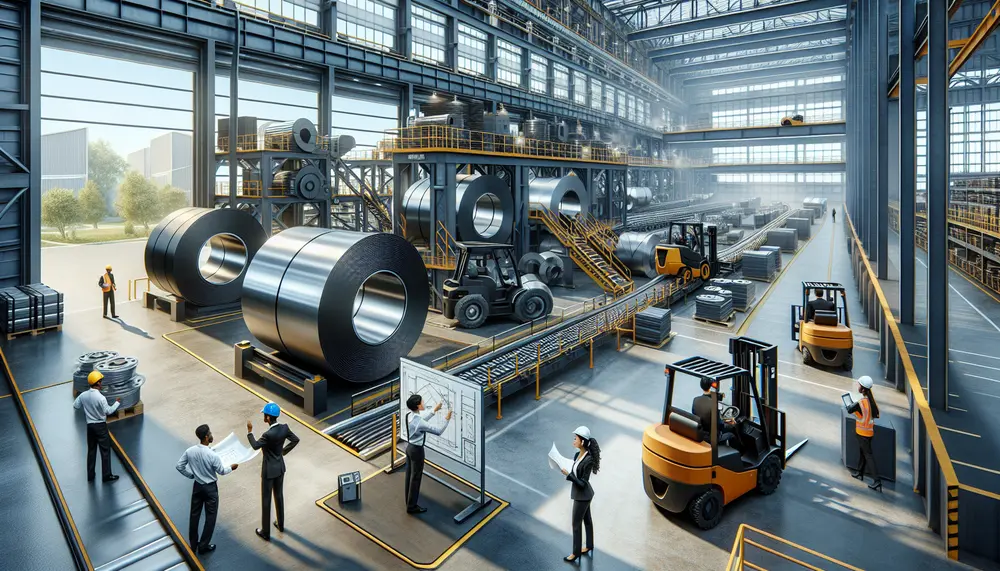
The article discusses the critical role of trading and logistics in the steel industry, highlighting key challenges such as complex supply chains and rising costs while presenting opportunities for improvement through advanced technologies, data analytics, and sustainable practices. By leveraging...
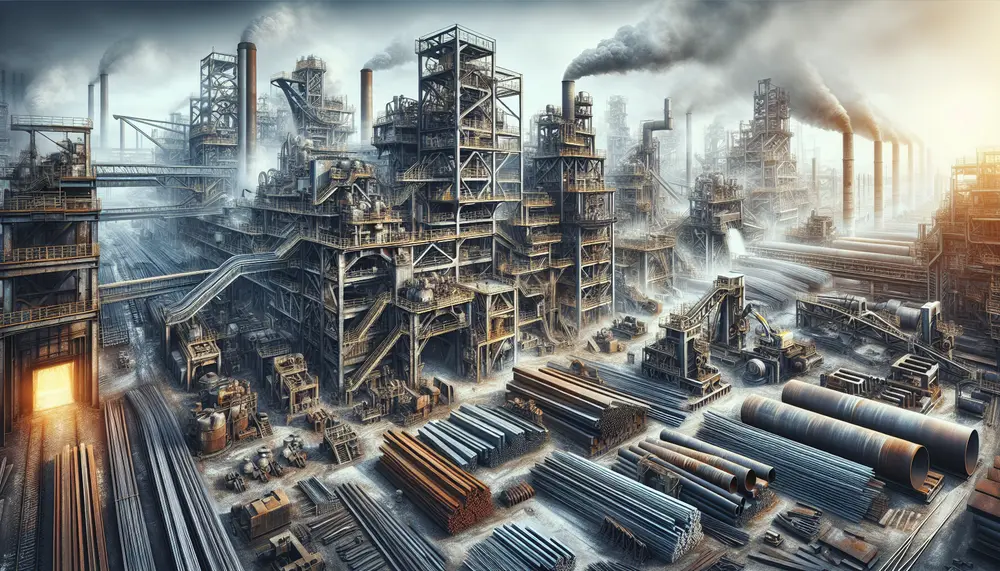
Steel fabrication involves transforming raw steel into structures or products using various techniques like cutting, bending, and joining to ensure strength and quality. Material selection is critical in this process as it affects the performance and longevity of the final...
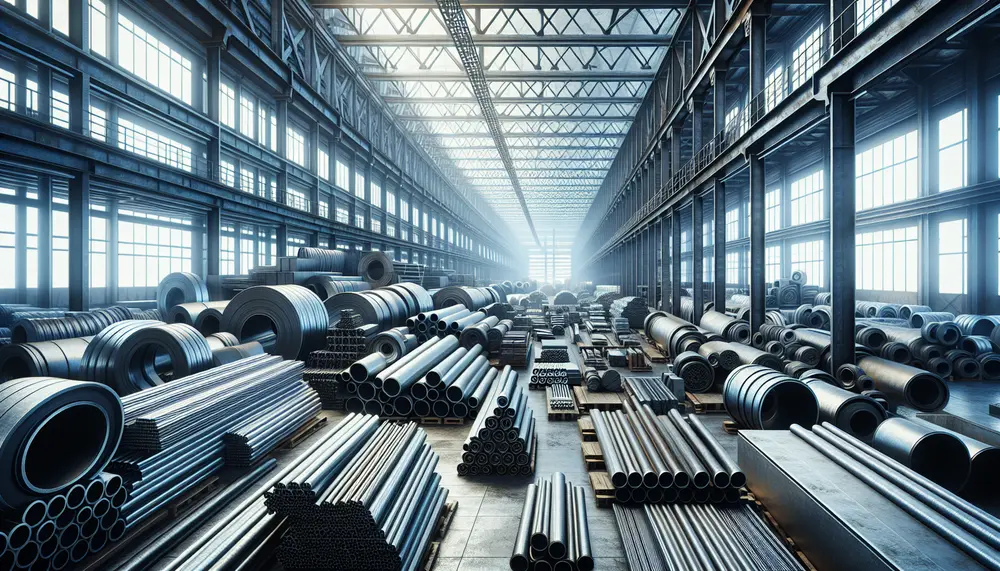
A steel product is an item predominantly made of steel, known for its durability and versatility across industries, with a wide range of forms and applications. Understanding these products involves knowledge of the production process from raw materials to finished...
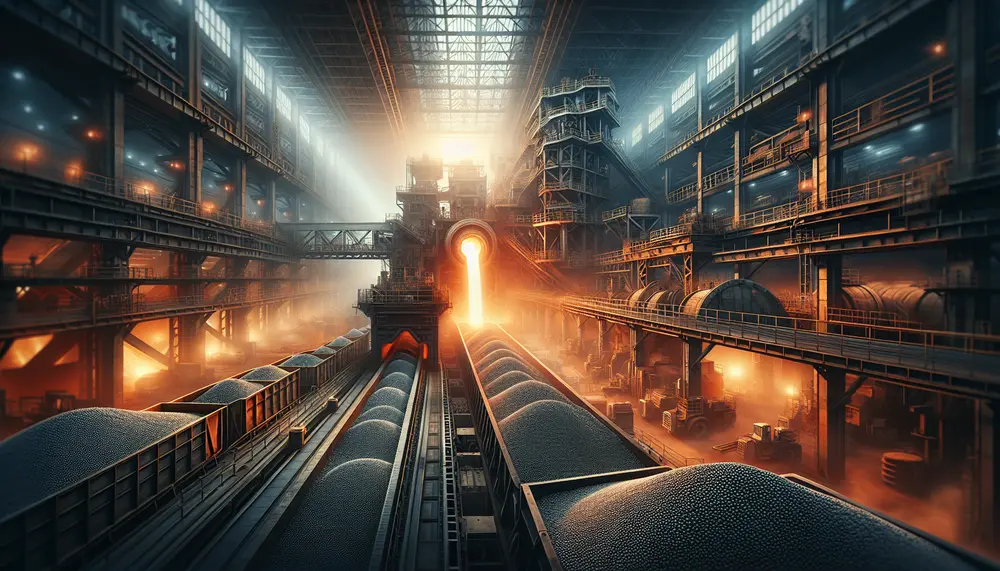
The article details the steel shot manufacturing process, from melting high-quality steel and atomizing it into droplets to cooling, sorting by size, heat treating for hardness and elasticity, conditioning for shape uniformity, tempering for toughness, rigorous testing for quality assurance...
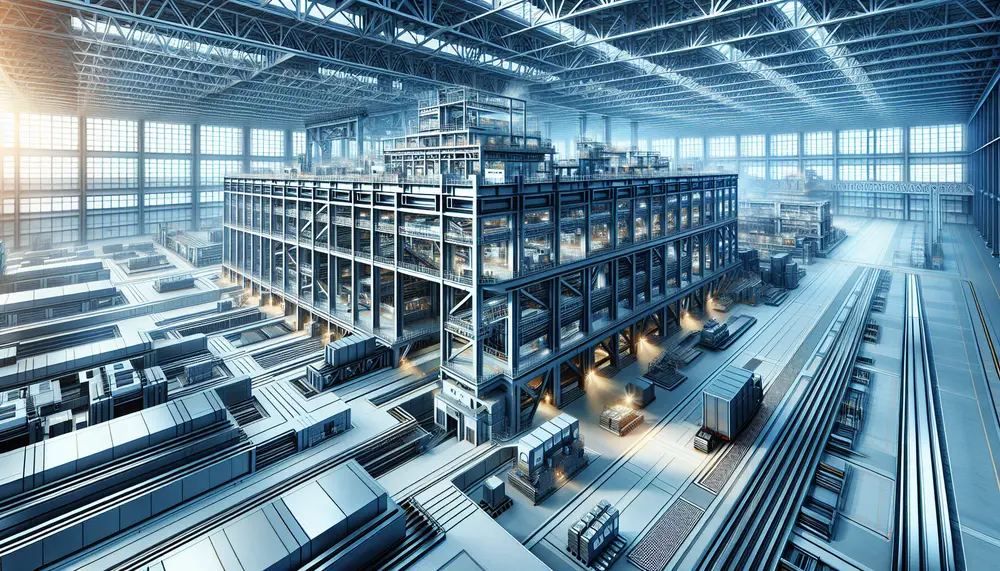
Steel manufacturing is undergoing a technological revolution with new advancements aimed at improving efficiency, reducing environmental impact, and enhancing product quality. Innovations include digital integration, electrification of furnaces to cut carbon emissions, 3D printing for complex parts production, advanced sensors...
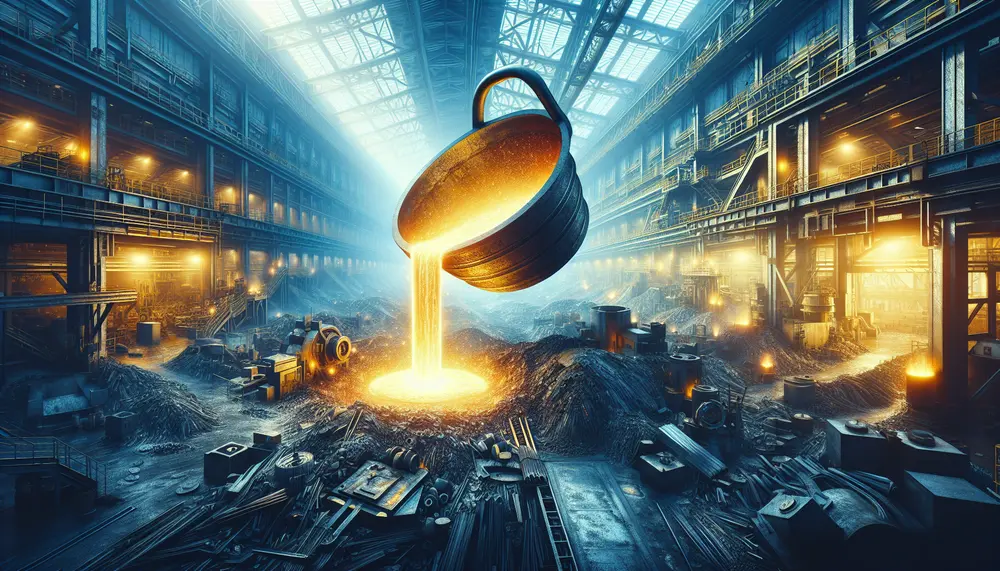
Metal manufacturing involves techniques like forming, machining, casting, joining, and finishing to create products from raw materials. Understanding these processes is essential in the industry; additional methods include extrusion, stamping, deep drawing, and shearing. Heat treatment alters metal properties through...
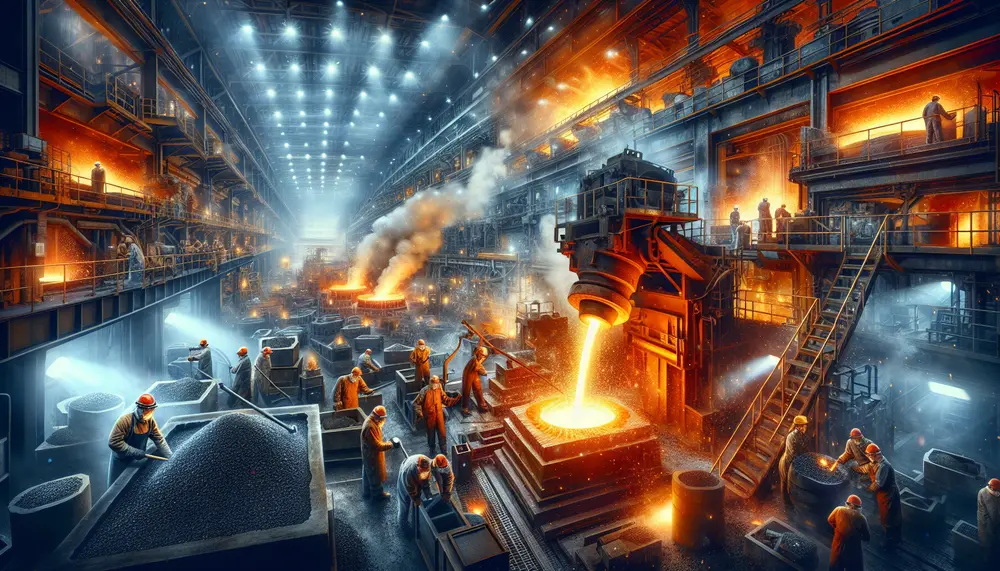
Steelmaking and casting are interdependent processes essential for producing high-quality steel products. Steel is made using Basic Oxygen Steelmaking (BOS) or Electric Arc Furnace (EAF), then shaped through casting, which involves pouring molten steel into molds to create specific forms;...
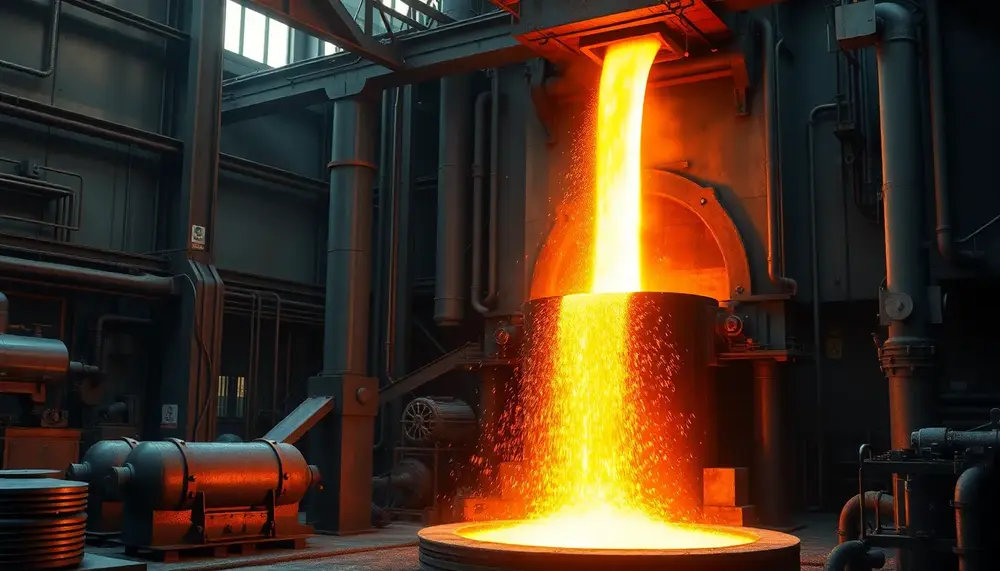
IspatGuru is a comprehensive resource for understanding steelmaking, offering insights into foundational concepts, advanced technologies like BOF and EAF processes, and sustainability. It bridges theory with practical applications while addressing modern challenges such as efficiency, environmental impact, and innovation in...
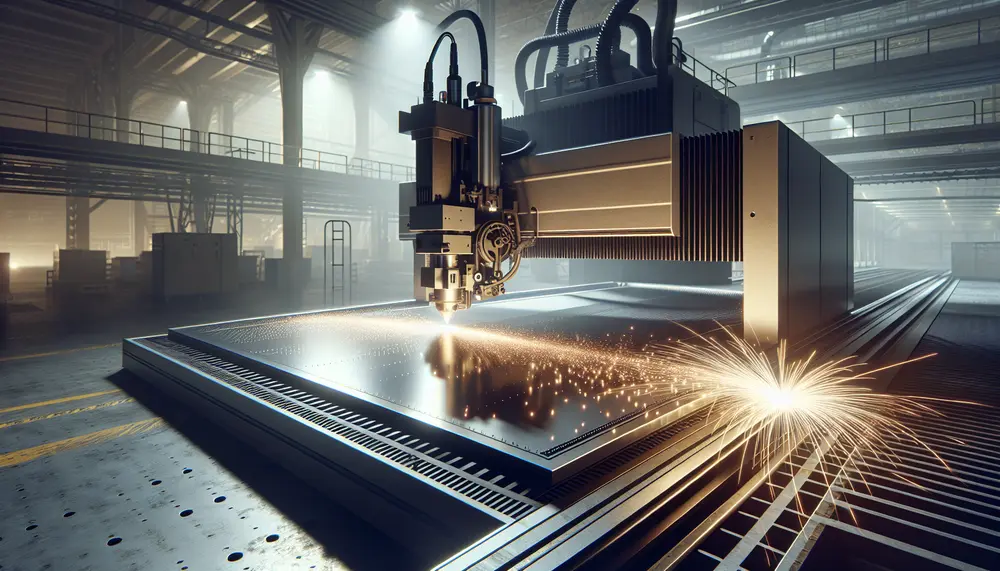
Laser precision cutting is a key technology in steel manufacturing, offering high accuracy and the ability to create complex shapes with minimal waste. It combines speed, versatility, and CNC integration for consistent quality production while maintaining material integrity through reduced...
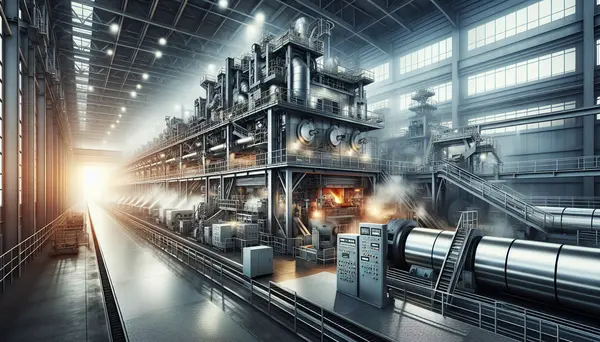
Efficiency is key in the steel industry, with advanced techniques such as automation and robotics, lean manufacturing principles, energy efficiency measures, data analytics and supply chain optimization being used to boost production. These methods not only increase output but also...
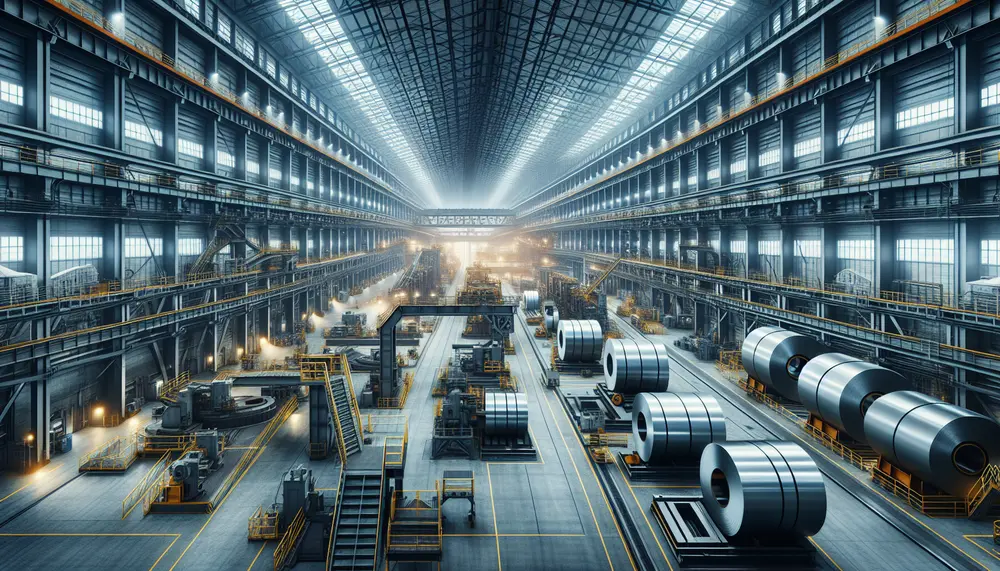
Manufacturing techniques are essential for transforming raw materials into finished goods, involving processes like casting, forging, machining, joining methods such as welding and soldering, and additive manufacturing. Understanding these techniques is crucial for innovation and efficiency in product development. Manufacturing...
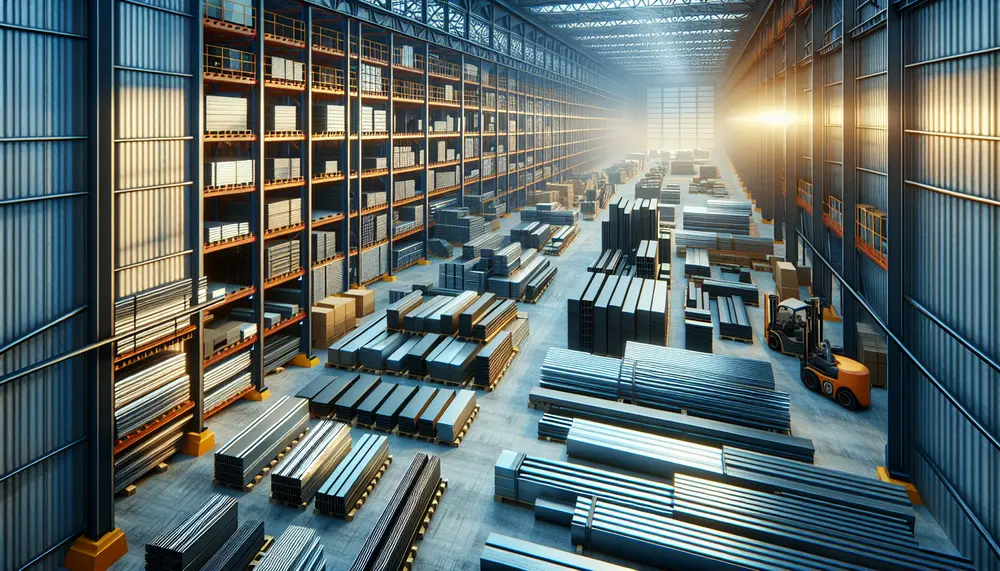
A reliable steel products wholesaler is crucial for businesses needing quality steel, offering benefits like cost savings and consistent supply. Evaluating a supplier involves checking certifications, material test reports, and possibly visiting facilities to ensure high-quality steel that meets industry...
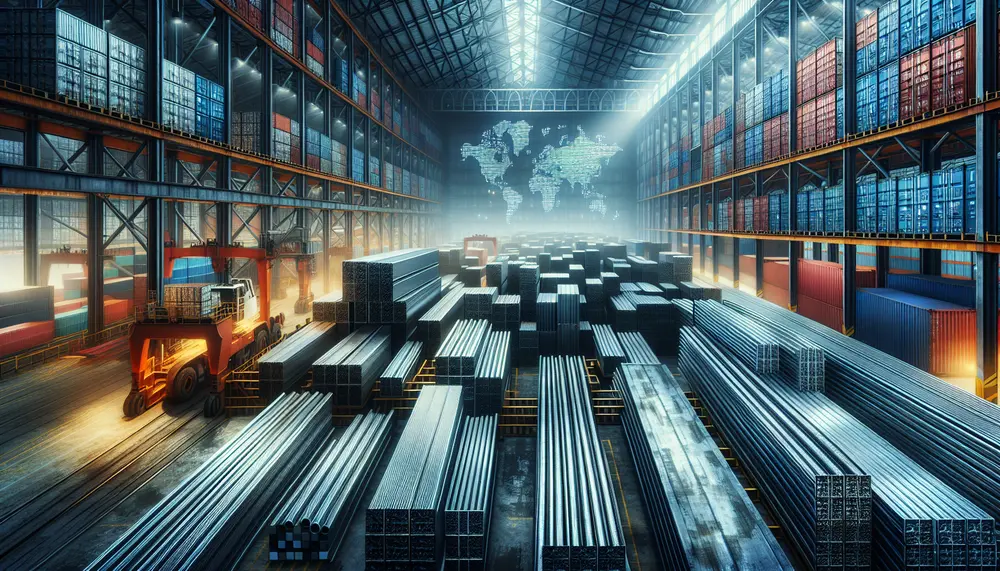
The global demand for steel is driven by its critical role in various industries, reflecting a trend towards modernization and economic growth. Steel Products International serves this demand with high-quality manufacturing and customer-centric services, supplying diverse sectors from automotive to...

